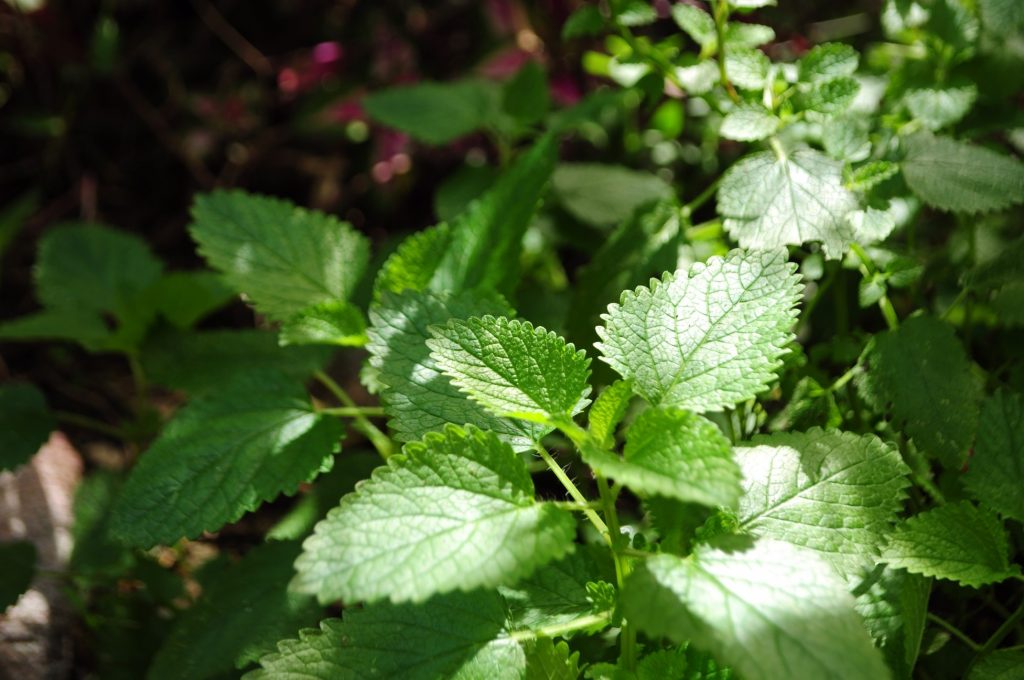We all know sugar is off-limits on keto, but that doesn’t mean people following this diet have to live without sweets. The opinions are pretty divided on this one: some believe natural sweeteners are the only other option, while others support artificial ones, and the third group doesn’t approve of either. We believe that you have a choice in the matter, for as long as you stay away from high-carb sweeteners like sugar, honey, maple syrup, dextrose, agave syrup, and others. Many people can’t do without sweets, and if you’re one of them, being on a ketogenic diet, you know how difficult it can get. In this article, at Lowcarb Online we will go through some of the most popular sweeteners and talk about their pros and cons.

What makes a good sweetener for the keto diet?
Most importantly, it should have no carbs. Your carb count on keto is restricted, so you shouldn’t be wasting any on a sweetener when there are zero carb ones. It’s also important that it doesn’t raise your blood sugar and insulin – if you take a sweetener that spikes your insulin, you’ll get kicked out of ketosis and your weight loss will stop. It would also be good if the sweetener can be used in many recipes and can handle heat well; this is especially important when baking keto treats. Finally, the most important asset of a good sweetener is that it is safe and doesn’t give you any negative side-effects, such as bloating or digestion issues. Nobody wants to feel sick every time they crave something sweet!

Stay away from sugar in all shapes and forms
You already know high-carb sweeteners are of limits: this, of course, includes sugar in all its forms and all its names. Manufacturers write their labels with the intention to hide the amounts of added sugar, so you may encounter names like cane sugar, glucose, corn syrup, sucrose, buttered syrup, brown sugar, fructose syrup… All of these are simple sugar and very bad for your diet. Fructose found in fruit is a pure carbohydrate – avoid it, and do the same about honey, another unprocessed sugar version, full of carbs. Agave and maple syrup are carbs as well, while Acesulfame-K, commonly found in zero-calorie and zero-carb drinks, is an artificial sweetener that affects insulin greatly, which is why it should be avoided (and with it, “zero” sodas too).
Natural Sweeteners

Stevia extract
Extracted from the stevia plant, stevia is a natural sweetener that is up to 400 times sweeter than sugar. It’s zero-carb and it also doesn’t spike insulin, making it a perfect sweetener for keto. Some people may mind its specific taste and aftertaste, which is why they might turn to other sweeteners, but that aside, stevia should be your go-to choice. When using a stevia extract, you must be careful with the dosage, as the sweetener is very strong. Some manufacturers sell it mixed with erythritol, a sugar alcohol, in which case it is easier to use. Some people may experience digestive discomfort after using stevia; it’s important to pay attention to how your body reacts to using it the first couple of times, and determine if this sweetener is a good choice for you. Overall, stevia is safe and it is sold as an extract; in some countries, you can even find raw stevia, but due to its strong flavor and sweetness, using it as an extract is recommended.

Monk Fruit, also known as Luo Han Guo
Monk fruit originates from Thailand and China, and became more popular in the rest of the world over the past decade. It’s very sweet – up to 200 times more than sugar, and it contains no carbs and calories when used as a sweetener. It has no side-effects on your digestive system or insulin, which makes it a great tool for the keto diet. It does have a taste, and similarly to stevia, it tends to be mixed with sugar alcohols when packaged. When buying monk fruit, try searching in a health store or online, and keep in mind that it is a bit more expensive than stevia and make sure that the other parts of the sweetener mixture are also zero-carb and zero-calorie.
Sugar Alcohols: don’t worry, it’s not real alcohol
This is definitely not alcohol – they’re just naturally sweet substances extracted from various plants. Some of them are keto-friendly because they aren’t digested and, therefore, don’t contain any carbs that you can absorb – “some” is the keyword here, because some others can cause bloating or affect your insulin. The most popular sugar alcohol for the keto diet is Erythritol, because it has zero absorbable carbs and is very similar to sugar, so it can be used as a substitute in your recipes. Other popular sugar alcohols are xylitol and sorbitol, which spike your insulin and do have countable carbs, so if you use them, don’t forget to count them towards your daily carb limit. One sugar alcohol you should avoid is maltitol. This substance is often used in “sugar-free” products and it can kick you out of ketosis because of its high effect on your blood sugar, and also cause bloating and cramping.

Chicory root: a sweetener made of fiber
Chicory root is an uncommon plant that is used as a sweetener: it contains mostly fiber, which means that it is almost 0 net carbs. It’s easy to use because it’s only half as sweet as sugar, and it’s safe and suitable for the keto diet. It can cause gas because of its contents, so be careful when you start using it for the first time. You can use it on its own or mix with other sweeteners and sugar alcohols in order to make your treats sweeter. It is still not as popular as other natural sweeteners, but it is still available online and in some health stores.
Artificial Sweeteners

Many people believe artificial sweeteners have more positives than negatives – zero calories, zero carbs on one side, and the other the on-going research about the effect of these sweeteners on the gut biome. Those that approve of the artificial sweeteners claim that they can be used on low-carb diets, and that they are safe to consume. Some of the most popular artificial substances used to sweeten up your low-carb treats are sucralose, aspartame, saccharin, acesulfame and cyclamate. Keep in mind that most of these sweeteners do not tolerate heat and cannot be used for cooking and baking. Additionally, as they have not been completely researched yet, you need to make your own decision regarding artificial sweeteners considering the possible side-effects: increased appetite, bloating, gas, cramps, and an overall effect on your weight loss and gut health.
Sucralose: more is less
This sweetener has an interesting effect: the more you consume it, the less of an effect on your blood sugar it has. It doesn’t affect your insulin, but it can’t be used for baking because its heat-sensitive. Most commercially available products with sucralose also contain high-carb ingredients like dextrose and maltodextrin, so read the label before purchasing sucralose artificial sweetener.

Aspartame: part of most “zero-carb” drinks
One of the most studied artificial sweeteners, mainly because it had been suspected to trigger headaches and migraines. No real link between the two has been found, but if you’re planning to use this 200-times-sweeter-than-sugar zero-carb sweetener, you should keep this in mind. Aspartame can’t be used for cooking and baking.
Saccharin: is it safe?
One of the oldest artificial sweeteners, it is known to cause health issues when digested by some animals, but no proof has been found of it affecting humans. It is up to 400 times sweeter than sugar, and unlike most artificial substances, can be used for cooking and baking. It is widely available and many manufacturers pack it together with dextrose, so read the label and avoid those packages.

Using a sweetener? Think about why you are doing it
Keto, as a diet, teaches you to appreciate the natural flavors of food; by removing sugar and high-carb food that is unnaturally sweet and “tasty”, it opens new possibilities for you. Using sweeteners while on the diet every now and then is okay, as we all like to eat something sweet from time to time. However, don’t try to recreate every sweet treat you used to eat before on a daily basis; this is counterproductive. You’re on keto in order to make a healthy change and improve your overall health, not to substitute every unhealthy habit you used to have any way you can. Of course, do not avoid sweeteners altogether: cut yourself a break from time to time, enjoy your favorite treats keto-style and you will notice that your sweet cravings will slowly diminish while eating keto. Most people claim that the keto diet made them able to taste and enjoy all kinds of food and flavors, and that their cravings went away with time.

Sweeteners may increase your appetite
On the down side, sweeteners and “tasty” food can increase your appetite and make it harder for you to follow your daily macro plan, especially if you’re on a deficit to lose weight. If you’re unsure which sweetener affects you or if they affect you at all, try avoiding some or all of them for a week or two.
Pick your sweetener based on your needs and preferences
As mentioned above, a lot of natural and artificial sweeteners are mixed with high-carb ones, such as dextrose and maltodextrin, when packaged by manufacturers, because these sweeteners are so sweet that only a small amount is needed, and the rest is just a filler, added in order to raise the quantity and, with it, the price. When baking, choose a heat-sustainable sweetener that is also zero-carb, as the amount used can affect your insulin if the chosen sweetener (or its filler!) is high in carbs. Check the list of ingredients instead of reading the nutritional label to get a full answer on the contents of the package. If you’re unsure, go for the liquid sweeteners: most often, these ones will have the lowest carb count even if mixed with bulking agents.

Sad news: Sweeteners can slow down weight loss for some people
Unfortunately, many people have reported that their weight loss slowed down after using sweeteners. There isn’t a logical explanation to this: theoretically, if you’re in a calorie deficit, you should be losing weight, with or without a sweetener. It is possible that some people experience a spike in insulin because of the sweet taste that a sweetener gives to food, but as a rule, that shouldn’t be the case. If you think you’re negatively affected by a sweetener, measure your insulin after eating a keto treat, or avoid sweeteners for a while and see if the situation improves; if the answer is positive, you will have to choose a different sweetener or eliminate them in order to reach your goals.
Sweeteners make the keto diet more viable on the long run
In theory, natural and artificial sweeteners are a perfect replacement for sugar on a low-carb diet such as keto, especially if you’re planning to turn keto into a lifestyle after you’re done dieting. In practice, they can increase your appetite, give you digestion issues such as gas and bloating, or stall your weight loss temporarily. In moderate amounts, they should be safe for everyone, but if you’re experiencing issues, switch up your sweetener with another or follow the spirit of the keto diet and try to appreciate the natural taste of food. After spending some time on the diet, you will naturally be able to enjoy flavors of almost every natural product. For some great keto products you can consume on your diet, including sweeteners, visit our shop: lowcarbonline.co.nz!



